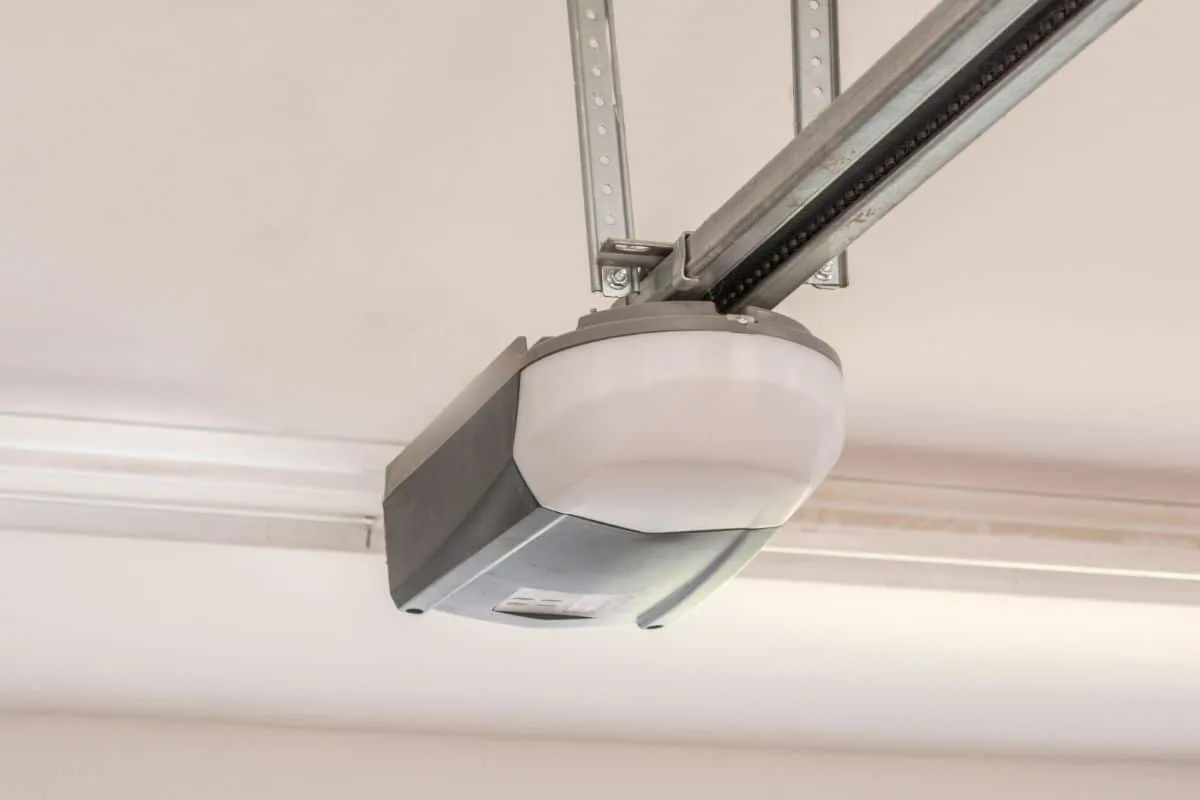If you notice that your garage door is moving slowly, getting stuck, or functioning improperly, the problem could be related to the lightbulb in your opener. Broken and malfunctioning garage doors can be a hazard not only to your garage’s belongings but also to your family.
If a garage door’s electronic system stops operating, it could create a fall risk, meaning that your garage might close quickly and without warning. This and other risks mean that it is important to understand your garage door’s problem and fix it as soon as possible.
LED lights can cause issues with garage door openers when they operate on the same frequency. Because most garage door openers operate between 288 to 360 megahertz (MHz), purchasing LED lights that operate on a higher frequency can help to reduce this issue.
To learn more about the proper bulbs to use in an opener and which garage lights won’t interfere with your door’s operating system, continue reading below!
All About LED Light Bulbs
LED light bulbs were named after the light-emitting diodes that they produce. LED lights operate by pushing electric currents through a diode, a common semiconductor, to make photons.
These photons create electroluminescence to emit light when attached to an electricity source such as an outlet plug or a bulb in an LED lamp socket.
LED bulbs are popular due to their high efficiency, but they may not be the best option for garage lighting.
The Garage Door’s Inner Workings
When most garage doors are installed on typical residential one, two, or even three-car garages, they are rigged on a railing system. This system is what holds the garage doors in place and allows it to track in a straight line as it raises and lowers.
A garage door is typically attached to the opener, often located on the garage ceiling, with a curved metal arm. When movement is detected, the torsion system and extension springs act to counterbalance the door’s weight.
This counterbalance creates consistent motion that easily repeats when the system is prompted to open and close by remote control or button.
While all garage doors operate within the same general engineering parameters, there are a few different garage door opener types to choose from when installing your door. They include:
- Belt-drive openers: these use a rubber belt rather than a metal belt
- Chain-drive openers: the motor and trolley mechanisms are connected by a chain
- DC-powered openers: the smoothest garage door opener
- Direct-drive openers: the quietest garage door opener
- Jackshaft-drive openers: adaptable and side installed to accommodate ceiling space
- Screw-drive openers: the most easily maintained type of opener
Each type of garage door opener system has its benefits and cons.
While the mechanism best for your home depends on the preference of the user, all tend to have some compatibility issues when used with or alongside LED lights.
How LED Lights Affect Garage Doors
LED lights are known to flash 15 times per second. This is due to a technology that allows them to emit a continuous stream of light. The flashes are on a 30 to 300 MegaHertz, or MHz, frequency.
It’s an LED light’s frequency that creates a compatibility issue between the LED light and the garage door opener.
Since a typical garage door opener uses from 288 to 360 MegaHertz, their operating frequencies overlap and could cause problems. Some LED lights will block your garage door’s electronic frequency, causing it to stop operating altogether.
But not all LED lights cause a total failure of your garage door.
Some lights cause minor problems and quirks that homeowners learn to live with when they cannot discover the source of their problem.
To figure out whether the light bulb in your garage is causing issues, look out for the following symptoms:
- The remote control must be within three feet of the garage door opener to function
- You are having trouble programming or reprogramming additional keypads or remote controls
- Your garage door only raises or lowers, but not does not do both
If you find that you are experiencing these issues with your garage door opener, it could be due to the interfering LED light frequencies.
To troubleshoot your garage’s LED lights, consider looking around your garage to see if you have the following:
- LED bulbs in your overhead light
- LED car headlights that remain on for long amounts of time
- LED safety cameras on the outside of your garage
- Holiday or string lights inside the garage or hanging directly outside the home
- Night lights in the garage with LED bulbs
- Outdoor motion-sensors near the garage that contain LED lights
Removing all of these light sources for 24 hours and then attempting to open and close your garage door can help you figure out whether they are the true source of the problem.
If you use this troubleshooting method and don’t notice a change, consider waiting a few extra days and trying again.
The Best Lights for Your Garage
Though it might seem like all LED lights are off-limits to use in your garage door remote and throughout your garage, some high-frequency LED lights are acceptable for garage use.
If you are set on continuing to use LED lights rather than switching back to regular light sources, consider opting only for the highest frequency LED light bulbs. They might be harder to find, but purchasing bulbs with a high enough MHz rating could allow for better garage door function.
A few options for LED light bulbs that will be compatible with most garage door openers include:
- EcoSmart: These bulbs have 60 watts and 800-840 lumens, with a somewhat warm to a bright glow.
- Great Eagle: These LED light bulbs have 60-100 watts and 800-1500 lumens, appearing bright to the eye.
- Phillips model 477638: This light bulb has 60 watts and 800 lumens, as well as a brighter appearance.
- Sylvania model 74765: This LED light bulb has 60 watts and 800 lumens, appearing warm to the eye.
If you aren’t interested in any of the high wattage LED bulbs listed above and would rather source your own garage light bulbs, make sure to avoid:
- Any type of halogen lightbulb
- High wattage bulbs over the recommended device wattage
- Lightbulbs manufactured over ten years ago
- Low quality LED light bulbs
- Short neck lightbulbs
- Specialty lightbulbs
For those who are not interested in searching for and installing their own lights, calling a garage door professional is always a good option.
Your local company will most likely be glad to test and troubleshoot your garage door opener and change out your garage lights as needed.
Fixing Your Malfunctioning Garage Door
When your garage door stops working and you aren’t sure why, don’t hesitate to take a look at all of the light bulbs and light sources in your garage. If your garage door remote requires any small bulbs, open it up to make sure you haven’t mistakenly inserted an LED light.
Since LED lights have the ability to block your garage door frequency, any bulbs in the vicinity could result in garage door opener failure.
The best way to fix your malfunctioning garage door is to locate all LED lights in the area and replace them with non LED lights with lower frequencies. While this change might cast a dimmer and warmer light throughout the space, it will ensure that your garage door opens and closes safely and consistently.


